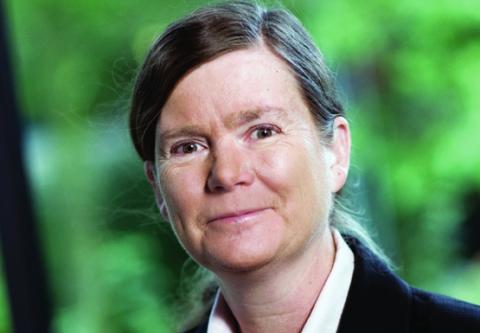Answering the big questions

In mid-January, the James Lind Alliance Priority Setting Partnership released the results of a year of hard work into finding out the top 10 research priorities for cystic fibrosis. Dr Janet Allen, Director of Strategic Innovation at Cystic Fibrosis Trust, explains what the results of the Partnership mean for people with CF, and how the Trust is funding vital research into these areas.
What an amazing piece of work. Over a year ago the Trust co-funded a programme of work along with the University of Nottingham, led by Professor Alan Smyth and Oli Rayner, to discover the top 10 research priorities for cystic fibrosis. Participants included people with CF, their friends, families and carers, and CF healthcare professionals, but deliberately not academic researchers and industry. Although the programme is UK-based, the people involved in the project reached out to CF organisations in other countries. To find out more about these vital questions, the team joined with an established organisation called the James Lind Alliance to begin a Priority Setting Partnership.
So what makes a Priority Setting Partnership different from just getting people with CF to fill in an online survey? Well, the James Lind Alliance provides the tools and infrastructure to really explore in depth the views of people with a medical condition. They are a highly-respected organisation and are funded by the National Institute for Health Research (NIHR), and it takes them over a year of hard work and careful planning to deliver the outcomes of the whole consultation process.
These results would not have been possible or valid without the enormous effort and time put in by committed participants who have given their valuable insight.
Your top ten priorities
Below are the top 10 priorities, and there is a wealth of information underlying every question selected. A further 10 questions that didn’t make the top 10 were also discussed and prioritised, and can be viewed on the James Lind Alliance website.
- What are the effective ways of simplifying the treatment burden of people with cystic fibrosis?
- How can we relieve gastro-intestinal (GI) symptoms, such as stomach pain, bloating and nausea in people with cystic fibrosis?
- What is the best treatment for non-tuberculous mycobacterium (NTM) in people with CF (including when to start and what medication)?
- Which therapies are effective in delaying or preventing progression of lung disease in early life in people with cystic fibrosis?
- Is there a way of preventing CF-related diabetes (CFRD) in people with cystic fibrosis?
- What effective ways of motivation, support and technologies help people with CF improve and sustain adherence to treatment?
- Can exercise replace chest physiotherapy for people with cystic fibrosis?
- Which antibiotic combinations and dosing plans should be used for CF exacerbations and should antibiotic combinations be rotated?
- Is there a way of reducing the negative effects of antibiotics eg resistance risk and adverse symptoms in people with cystic fibrosis?
- What is the best way of eradicating Pseudomonas aeruginosa in people with cystic fibrosis?
What we're doing about it
When I looked at the outcome of the Priority Setting Partnership, two things really stuck out as great achievements for the Trust.
Firstly, number one on the list is “What are the effective ways of simplifying the treatment burden of people with CF?” and I am thrilled to see how well this goal is reflected in the Trust’s 'Life Unlimited' vision.
Secondly, our existing research investments address all 10 priorities, in some cases directly and in others indirectly.
For example, we are funding Strategic Research Centres (SRCs) that directly address the questions on NTM in question three, and Pseudomonas in question ten. With help from the government we are co-funding work on the role of antibiotics in influencing exacerbations in infants with CF (CF START), as well as co-funding a project investigating motivation/technology to improve adherence. And last year the Trust ran a 'research sandpit' focusing on the GI tract (question two) and will be announcing the outcome of this shortly. We are funding research into cystic fibrosis-related diabetes (CFRD) through another SRC, but question five asks a very precise question - is there a way of preventing CFRD? Very interesting.
Looking to the future
It is my responsibility to make sure that all researchers funded by the Trust are aware of the results of this Priority Setting Partnership. Sharing this knowledge not only ensures that our funding addresses issues important to people with CF, but also provides vital data that can help improve the CF researchers’ access to public funds such as those provided by NIHR. It is also my responsibility to balance the Trust’s research portfolio and ensure that as new, cutting-edge science becomes relevant to CF, research into these areas is also supported. Who would have predicted even one year ago that gene editing and the use of stem cells to define a route map to find a cure for CF would be so prominent?
With the help of the James Lind Alliance Priority Setting Partnership, the Trust can continue to create a balanced research portfolio and invest in the brightest and best researchers to make a real difference to all people with CF - from those in their first few months of life to those with severely damaged lungs waiting for a transplant, and across the full spectrum between these extremes.
Thank you to Professor Smyth, Oli Rayner, Zoe Elliott, a parent member of the steering committee, and everyone who helped to make the Priority Setting Partnership a success. I am a convert!
Read Zoe and Professor Smyth's interview on the Priority Setting Partnership.
Find out how to make a donation or fundraise to help us continue to fund vital research into cystic fibrosis.
